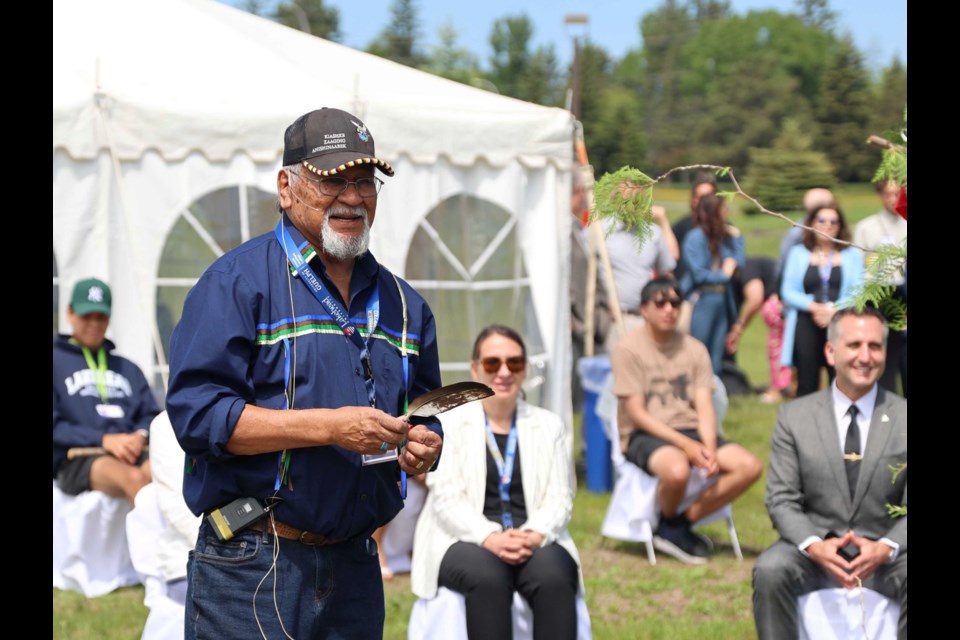THUNDER BAY — Gakina Awesiinyag means a place for all animals and it's the name of Lakehead University's new veterinary facility.
“Indigenous people believe that the four-legged, the winged, the fish and the swimmers and the crawlers are all connected,” said Elder Gene Nowegejick of Kiashke Zaaging Anishinaabek. “It's our connection to our philosophy of life, the holistic concept means every living thing is included.”
With construction set to begin this summer, the university opted to celebrate the milestone with a ground blessing ceremony, led by Elder Gene Nowegejick to honour the land and demonstrate the university’s strong commitment to reconciliation and decolonization.
Instead of a traditional groundbreaking, the ground blessing follows cultural protocols and pays respect to the spirit of the land where the new animal education facility will be constructed.
“Today is about blessing the ground for the construction of the new veterinary clinic here at Lakehead University, which is really going to be foundational in the provision of care for animals,” said Kevin Holland, MPP for Thunder Bay—Atikokan.
Launching the new initiative with Anishnaabe culture incorporated from the start, the many dignitaries in attendance on Tuesday were invited by Nowegejick to participate in a traditional pipe ceremony.
“I’m happy to be part of it,” Nowegejick said. “We developed a program naming and philosophy, it's gonna incorporate this area and try to get people interested in working in this area, learning about animal welfare.”
Aimed at engaging more northern students, the name Gakina Awesiinyag, meaning ‘All Animals (Place For)’ was chosen based on guidance from the Lakehead Elders’ Council as per request from donors Kim and Stu Lang, who wanted the name to reflect Indigenous stewardship of land and animals.
The blessing and the naming together represent respect, reciprocity, and the shared vision behind this project.
“We are very hopeful that when Indigenous students come here, they will feel welcome here… and then want to come back after they finish their education at Guelph and hopefully return to their home communities and take that expertise there and serve the needs of their communities,” said Gillian Siddall, president of Lakehead University.
With limited access to domestic and livestock veterinary care for community members living in Northwestern Ontario, the need is at an all-time high, said Siddall.
“It was difficult to get vets for pets, and then also very difficult to get vets for farm animals, which also has a significant impact on the region,”
The program is designed to help address the shortage of veterinarians in northern Ontario by providing location-based and culturally relevant training and education in the north, for the north.
“By bringing veterinary education closer to home, we're addressing critical gaps in care for livestock, pets and wildlife needs that are essential to both our agriculture sector and the overall well-being of our communities,” said Holland.
Construction is expected to be complete in two years, but the Collaborative Doctor of Veterinary Medicine Program will admit its first students this fall.
